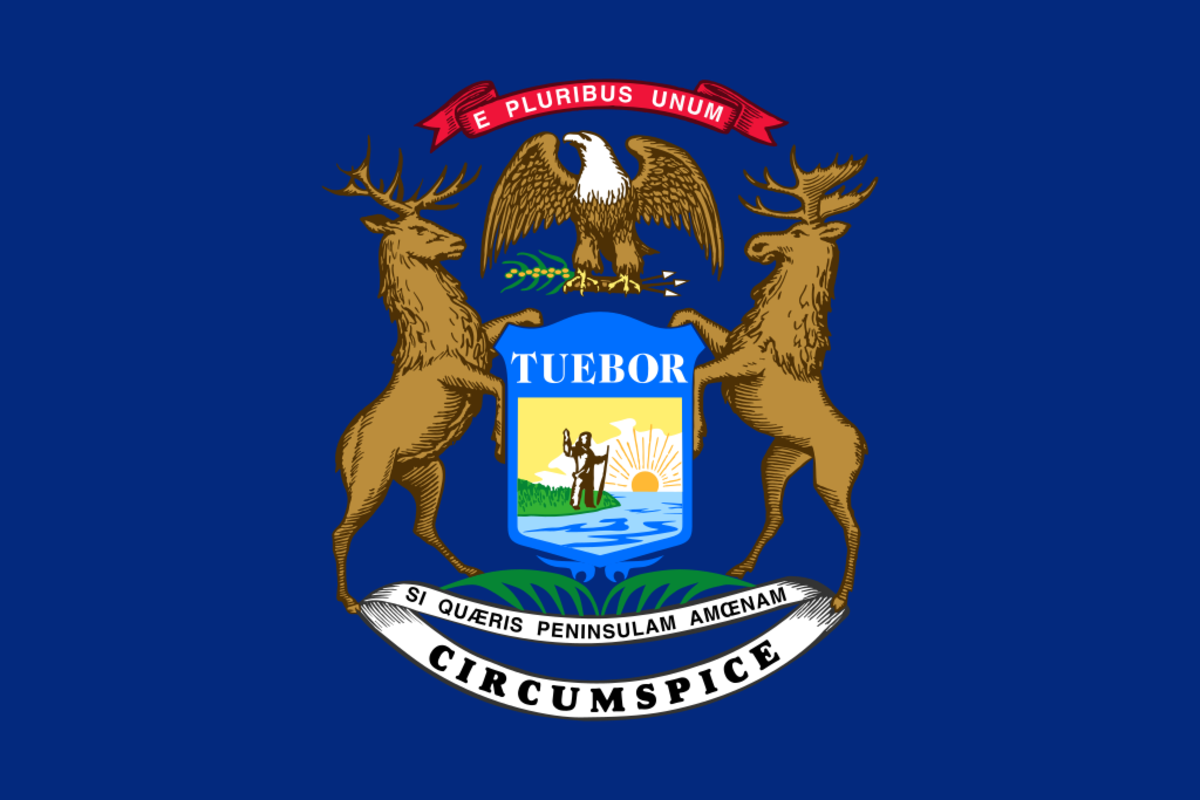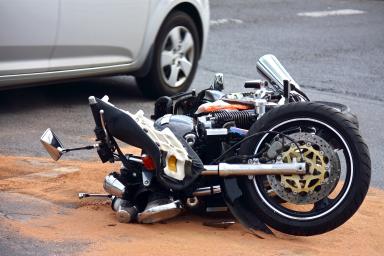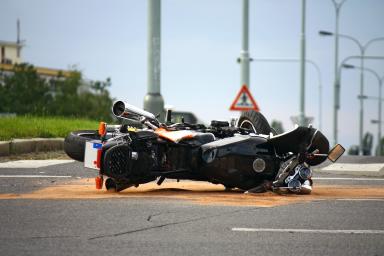Michigan Motorcycle Laws

Over a 30-year period, Michigan observed a rising trend in the number of motorcyclists killed in road accidents. According to a study published by the motorcyclist association SMARTER, from 31 lives lost in 1992, motorcyclist fatalities hit a high of 166 in 2021.
Moving traffic violations, like speeding, sudden turns, and driving under the influence, are among the common causes of motorcycle crashes in Michigan, reflecting nationwide trends. National Highway Traffic Safety Administration data show that motorcyclists have the highest incidence of speeding-related accidents at 34% compared to 22% for truck drivers and 23% for car drivers. Drunk driving is also more prevalent among motorcycle riders than other vehicle operators, according to NHTSA statistics.
This article guides motorcycle riders through some of the laws that aim to protect them from road hazards and resulting injuries. It also outlines insurance requirements and the damages claims process to inform motorcyclists and other road users of their rights and responsibilities in case of an accident.
Michigan Safety Gear Requirements
State law requires all motorcycle riders and passengers to wear safety gear when riding on public roads in Michigan.
Helmets
Michigan Compiled Laws Section 257.658 details the state’s helmet requirements for motorcyclists. Wearing a helmet that meets or exceeds US Department of Transportation standards is mandatory, except in the following situations:
The operator is at least 21 years old.
The operator has had a motorcycle endorsement on their license for at least two years or has passed a motorcycle safety course.
The operator has medical insurance coverage of at least $20,000 per passenger. Therefore, if the operator is carrying one passenger, the required insurance coverage should be at least $40,000 unless the passenger has their own coverage of at least $20,000.
Despite these exceptions, it’s still recommended that all riders—even those over the age of 21 and with the appropriate insurance—wear a helmet when operating a motorcycle to avoid injuries like concussions or, worse, death.
Eye Protection
Michigan law requires motorcycles to be equipped with a windshield to protect both drivers and passengers from oncoming insects, dirt, and debris.
In the absence of a windshield, the motorcycle driver must wear goggles, eyeglasses, or a face shield. The preferred protection device must be transparent and made of shatter-resistant material. Any violation of the above rules is considered a civil infraction, and the motorcyclist may be ordered to pay a fine.
By using proper eyewear while riding, motorcyclists can avoid not only penalties but also problems like dry eyes, eye infections, corneal abrasions, and macular degeneration. These conditions can impair vision and, ultimately, one’s ability to drive safely.
Michigan Motorcycle Passenger Limit
MCL Section 257.658(2) prohibits motorcycle operators from carrying more passengers than the motorcycle is designed to carry. This means the number of passengers that can ride on a motorcycle is determined by the manufacturer's specifications and the motorcycle design.
So, if a motorcycle is designed to carry two passengers, it can legally carry one driver and one passenger. However, if the motorcycle is designed to carry only one passenger, then the driver would be the only person allowed on it.
In addition, MCL Section 257.658a requires that passengers sit on the designated passenger seat and use the footrests or floorboards. Passengers should never ride on the gas tank or any part of the motorcycle not intended for seating.
Anyone who violates the above provisions can be cited for a civil infraction and should pay a fine not exceeding $100. In addition, the violator may also be required to pay associated costs, such as court and state fees.
Michigan’s restrictions on passenger numbers for motorcycles also apply to trikes. The state puts trikes in the same category as traditional two-wheeled motorcycles, so both are subject to the same rules and regulations. This means that trike drivers may not overload their sidecar beyond the manufacturer’s specifications for its passenger limit. Doing so can result in a civil infraction for the trike operator.
Michigan Motorcycle Endorsements and Permits
As indicated in MCL Section 257.312a(1), before a rider can operate a motorcycle on a public street or highway, they must first acquire the proper motorcycle endorsement on their operator's or chauffeur's license.
An operator with a three-wheeled motorcycle endorsement but with no motorcycle endorsement is limited to driving three-wheeled motorcycles. A three-wheeled motorcycle endorsement does not permit the operation of a two-wheeled motorcycle.
Driving a two-wheeled motorcycle when carrying only a three-wheeled motorcycle endorsement counts as a violation of Michigan laws. The first offense is treated as a civil infraction punishable by a fine not exceeding $250. Subsequent violations are considered misdemeanors, which carry the penalty of imprisonment of up to one year, fines of not more than $500, or both.
Michigan Motorcycle Insurance Requirements
Michigan state law treats motorcycles differently from motor vehicles regarding insurance. This means that, unlike Michigan car drivers, motorcyclists are not required to have Injury Protection or Property Protection coverage. On the other hand, it is mandatory for Michigan motorcycle drivers to carry liability insurance with the following minimum coverage limits:
$50,000 for injury to or death of a person in an accident
$100,000 for each accident if several people are injured or killed
$10,000 for property damage
Riders can use their liability insurance to pay for damages they cause to others and their vehicles. They cannot use it to pay for losses related to their injuries or damage to their own motorcycles, even if another driver caused the crash.
Nonetheless, Michigan requires motorcycle insurance companies to offer optional medical coverage. If a rider is hurt in an accident without insurance coverage, they may access these medical benefits. Other optional insurance coverages for riders include:
Collision Coverage — pays for the repair of a motorcycle damaged in a collision with another vehicle or object, regardless of who is at fault.
Comprehensive Coverage — protects the policyholder’s motorcycle from damage due to non-collision reasons like theft, vandalism, fire, and weather-related incidents. If a motorcycle is damaged or stolen due to these events, comprehensive coverage can help pay for repairs or reimburse the owner for the value of their motorcycle.
Uninsured or Underinsured Motorist Coverage — pays for damages like medical bills, lost wages, and pain and suffering caused by a driver without enough insurance.
Michigan Is a No-Fault State for Insurance Claims
Michigan is a no-fault state for insurance claims. This means if a motor vehicle owner figures in an accident, their own insurance company will pay for their damages and losses, regardless of who was responsible for the accident.
However, Michigan has a different rule regarding motorcycle accidents. Motorcycles belong in a separate category from other vehicles, like cars and trucks, in terms of insurance claims.
The following scenarios explain how Michigan’s no-fault rule applies to motorcycle riders:
If a motorcyclist is hurt in an accident involving an insured motor vehicle, the latter’s Personal Injury Protection benefits will pay for the motorcyclist’s medical care, rehabilitation, and recovery expenses, as well as replacement services and wage loss. If the former dies from their injuries, the PIP will also cover the funeral expenses and survivor’s benefits.
If a motorcyclist is injured in an accident involving a motor vehicle with no PIP coverage, the motorcyclist can claim PIP benefits of up to $250,000 from the Michigan Assigned Claims Plan.
If the motorcycle accident does not involve a motor vehicle, the motorcyclist can claim reimbursement from the medical or health plan they purchased with their motorcycle insurance.
Additionally, motorcyclists should take note that they may be disqualified from PIP benefits if:
They stole or took the motorcycle unlawfully.
They are not a Michigan citizen.
They do not meet the minimum required insurance to operate a motorcycle in Michigan.
The rules regarding insurance claims related to a motorcycle crash in Michigan might seem more complicated than when a collision only involves motor vehicles. If any of the scenarios described above applies to you, speaking with a motorcycle lawyer can help you navigate the procedure for obtaining compensation.
How Much Can Someone Sue for a Motorcycle Accident in Michigan?
A Michigan motorcycle rider who suffered injuries in a collision with a car or a truck can file a lawsuit against the party responsible for the accident. A third-party claim, negligence claim, or tort claim is the legal term for this type of lawsuit. This claim requires proof that the other party’s negligence is responsible for the crash and should compensate the plaintiff for damages.
Non-Economic Damages
Under Michigan law, non-economic damages refer to pain and suffering, which includes the following conditions:
Fright and shock
Shame, anxiety
Mental anguish
Loss of social pleasure and enjoyment
Physical pain and suffering
Mortification, embarrassment, humiliation
However, before a motorcyclist can recover non-economic damages, they must show that, as a result of the accident, they have suffered “serious impairment of body function.”
Motorcycle injuries are often severe, keeping victims and their families from living a normal life. There is no monetary limit nor a standard formula for calculating pain and suffering damages, but an experienced lawyer can evaluate your case and determine what they think you deserve based on the case details.
Claims Against the Insurance Provider
Another type of lawsuit a motorcyclist can file is against the other party’s insurance company. The injured crash victim can resort to this legal action if the at-fault driver’s insurance fails to pay them no-fault benefits.
Wrongful Death Lawsuit
Surviving family members of a motorcyclist who died in a crash also have a right to sue the at-fault driver. They can file a wrongful death lawsuit to obtain compensation for pain and suffering caused by the passing and separation from their family member. They may also claim other losses recoverable under the Michigan Wrongful Death Act.
Michigan Is a Comparative Fault State for Motorcycle Accident Lawsuits
Like other comparative fault states, Michigan allows motorcycle crash victims to receive compensation for their injuries even if they are partially at fault for the accident. A jury or a judge determines each party's degree of fault based on the evidence presented at trial.
Suppose it was established that the plaintiff incurred $100,000 in compensatory damages for an accident. If the jury found that the plaintiff is 30% at fault because he or she was speeding, instead of awarding the full amount, the jury will subtract $30,000 from the total, so the plaintiff will only receive $70,000.
This formula applies as long as the victim’s fault does not exceed 50%. If it reaches 51% or more, the victim is barred from recovering any compensatory damages.
Michigan Statute of Limitations for Motorcycle Accidents
In Michigan, the statute of limitations for motorcycle accidents is generally three years from the date of the incident. This means if you have been injured in a motorcycle accident, you must file a lawsuit within three years from when it occurred, or you may lose your right to recover compensation for your injuries.
Michigan’s statute of limitations for claims arising from injury, death, or destruction to property—under which motorcycle accidents can be categorized—can be found in MCL Section 600.5805.
While the general statute of limitations for personal injury claims in Michigan is three years, there are exceptions to this rule:
Minors: If the person injured in the motorcycle accident was under 18 at the time of the accident, the statute of limitations may be put on hold until the minor reaches the age of 18.
Disability or insanity: If the injured person was unable to file a claim due to disability or insanity, the statute of limitations may be tolled until the person's disability or insanity passes.
Discovery rule: In cases where the injury could not reasonably have been discovered at the time it occurred, the statute of limitations may be extended.
Legal Resources for Michigan Motorcycle Accident Victims
ABATE of Michigan
American Bikers Aiming Toward Education is a non-profit organization dedicated to protecting motorcyclists’ rights and ensuring safer roads for motorcyclists. Although ABATE is not a legal assistance provider, it offers rider education programs that include topics like licensing and alcohol awareness. The group also provides the documents and contact information needed to help motorcycle riders write to their state representatives.
Michigan Assisted Claims Plan
The MACP offers assistance to motorcyclists involved in an accident. Established by law, the organization comes in when a motorcyclist is injured by a vehicle not covered by insurance. It provides motorcycle operators with up to $250,000 in PIP benefits.
Michigan Legal Help
Michigan Legal Help gives free legal counsel to low-income individuals and families. Its website contains a self-help resource library that contains a wide selection of legal articles beneficial for many different scenarios. Michigan Legal Help also makes it easy to navigate this archive by asking the website visitor some questions about their legal issue. The website then fetches informative articles that may be relevant to the situation.
State Bar of Michigan
The State Bar of Michigan has numerous online features and resources the public can use to address their legal concerns. Its website offers a lawyer referral service, a lawyer directory, and articles that can help the public navigate their legal dilemmas. Motorcycle victims may use the website to find a lawyer who can give them advice, especially on obtaining damages.
Expertise.com StaffAuthor
Step into the world of Expertise.com, your go-to hub for credible insights. We don't take accuracy lightly around here. Our squad of expert reviewers, each a maestro in their field, has given the green light to every single article you'll find. From rigorous fact-checking to meticulous evaluations of service providers, we've got it all covered. So feel free to dive in and explore. The information you'll uncover has been stamped with the seal of approval by our top-notch experts.


![¿Cuál es la indemnización promedio de las demandas por accidentes de moto? [2023]](https://images.ctfassets.net/k00sbju4hbzq/590XSDSoqNVs6XSMNY5s3G/a969ee3bedaaf9016cec601fc30f495b/average_motorcycle_accident_settlement.jpg?fit=fill&w=384&q=75)

